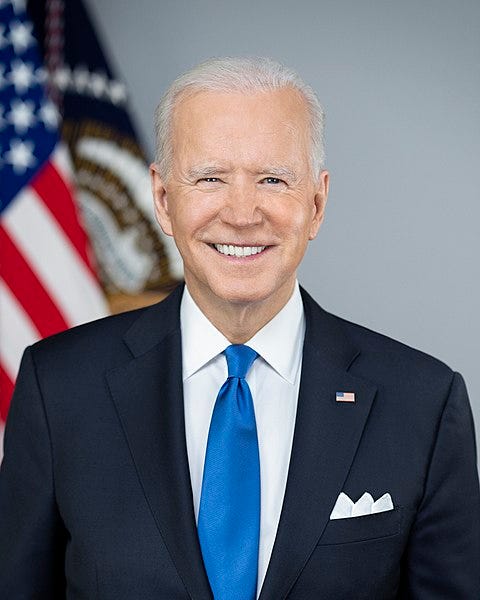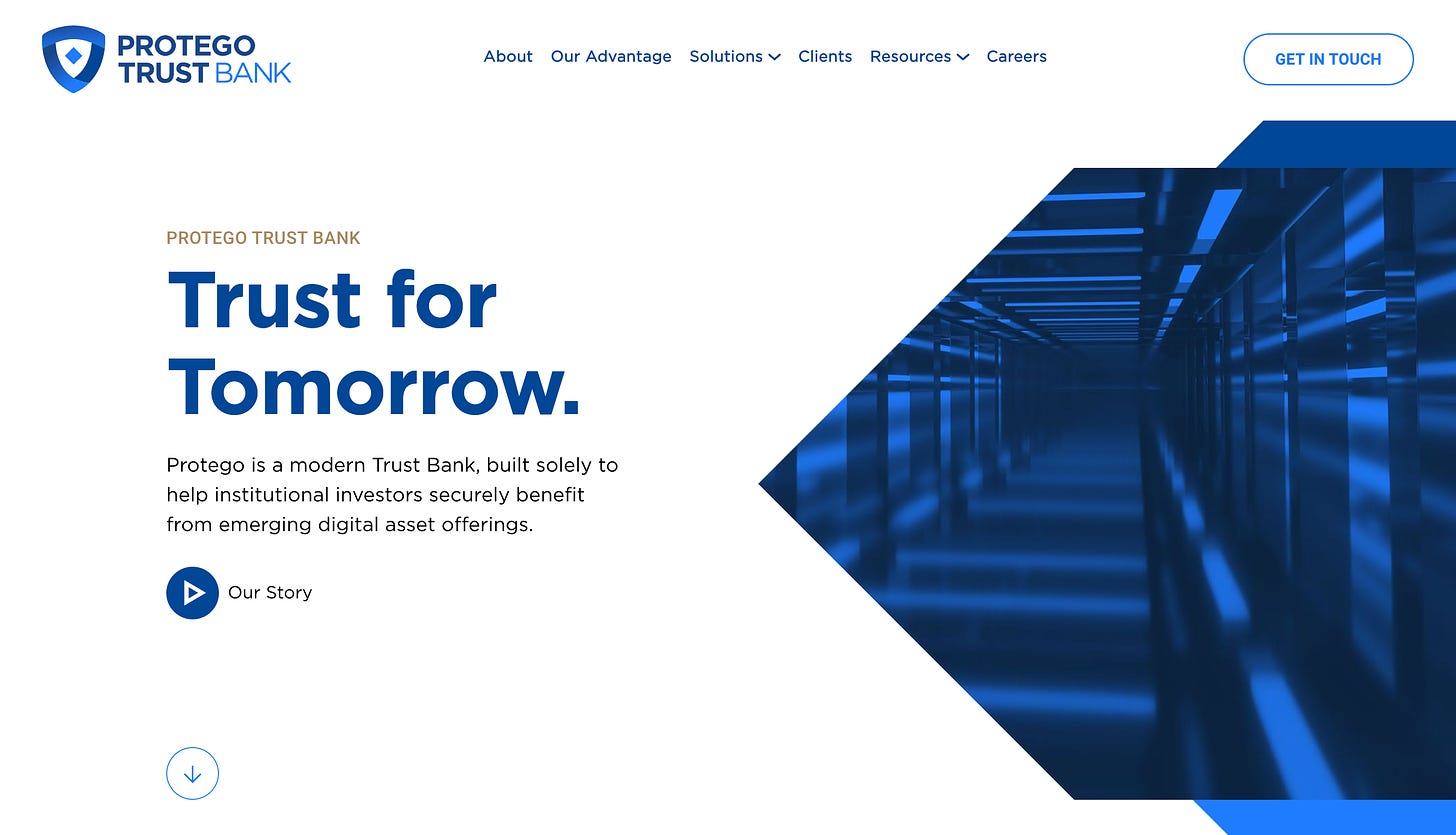Does Barry Have $630 Million? 😬
Weekly News Recap: 🎤 Will DCG go bankrupt?, ⛏️ US mining taxes, 💸 Coinbase's earnings report, and more ❕
$630M Due Next Week: Is DCG at Default Risk?
The Genesis bankruptcy situation is approaching a critical juncture, with Digital Currency Group (DCG) facing a looming $630 million payment deadline on May 11. As concerns mount over DCG's ability to meet this hefty obligation, the future of Genesis creditors, Gemini Earn users, and the broader market hangs in the balance.
On today’s episode of Unchained, Lumida Wealth CEO Ram Ahluwalia delves into the potential consequences of DCG, led by Barry Silbert, being unable to fulfill its debt commitments.
Ahluwalia expressed his doubts, stating, “I don't believe they'll have the ability to make the debt payments.”
Weekly News Recap
White House Proposes Crypto Mining Tax
The Biden administration is pushing for a tax on crypto miners equal to 30% of their energy costs. The purpose is to cover the "harms they impose on society," according to the White House’s Council of Economic Advisers (CEA). The Digital Asset Mining Energy tax could generate up to $3.5 billion in revenue over the next decade, but Republican opposition may hinder its progress.
“I know politicians focus only on first order effects, but it bears repeating, for the nth time – discouraging mining in the U.S. would directly increase emissions associated with Bitcoin mining,” said Nic Carter, founder of Castle Island Ventures.

In other news, Bhutan's investment arm, Druk Holding & Investments (DHI), and Jihan Wu's Bitdeer Technologies plan to jointly raise up to $500 million for a crypto mining fund. Ujjwal Deep Dahal, CEO of DHI, stated the partnership aims to create a "carbon-free digital asset mining datacenter" and foster a "sustainable domestic economy" in Bhutan.
As the US tightens regulations on the crypto industry, the Blockchain Association, a crypto advocacy group, is shifting resources out of New York state to focus on federal policy in Washington, D.C. This decision follows New York Governor Kathy Hochul's signing of a law banning fossil fuel-powered cryptocurrency mining in the state, making it the first state in the US to do so.
Coinbase Exceeds Expectations in Q1, But Faces Legal Issues
Coinbase ($COIN) outperformed analysts’ estimates in the first quarter of 2023, reporting revenues of $772.5 million, significantly surpassing the estimated $653.84 million in revenues. Despite slightly lower trading volumes, transaction revenue also exceeded forecasts, reaching $374.7 million against an expected $318.5 million, highlighting continued growth in the crypto exchange market. “We are pleased with the pace of innovation and the results we are seeing,” said the exchange on Twitter.
The stock was up 8% following the earnings release.
Despite that good news, earlier in the week, Coinbase faced two legal complaints. The first one alleged the violation of Illinois' Biometric Information Privacy Act (BIPA) during its Know Your Customer (KYC) checks. It claims that Coinbase's KYC procedures are "unlawful" due to the lack of user protection against identity theft.
The second accuses its top executives of making over $1 billion through Coinbase’s direct listing by not disclosing, before the company's shares went public in 2021, negative information, such as that the company’s revenue was being compressed or that it planned to do an additional $1.25 billion private sale in new convertible notes that would dilute existing shareholders.
Coinbase denies both allegations, calling them "frivolous" and "meritless."
In other news, Coinbase announced the launch of the Coinbase International Exchange, allowing international users to trade perpetual futures out of Bermuda. The platform will initially offer Bitcoin and Ether derivatives with 5x leverage, with more listings planned for the future. This move comes amid a bitter dispute between Coinbase and U.S. regulators, as the company seeks to compete with other crypto exchanges in the offshore derivatives market.
Economist and crypto analyst Alex Kruger, tweeted, “US regulators [are] succeeding in pushing crypto abroad.”
Revelations About Protego's Application Support Operation Chokepoint 2.0 Theory
A recent investigative report by New York Mag’s Jen Wieczner has unveiled new information about crypto bank Protego Trust's application with the Office of the Comptroller of the Currency, the US’ chief bank regulator, which had previously been denied. Valued at $2 billion, Protego had received conditional approval in 2021 and raised over $100 million from major crypto companies, including Coinbase.
An anonymous source familiar with the matter has now revealed that the denial was due to a technicality that the regulator had never before mentioned to Protego. Despite securing the necessary funding before the deadline, the OCC stated the reason for denial was that the funds were not physically in the bank. However, Protego was previously informed that the money transfer was only required four days before the official opening date.
Protego founder Greg Gilman said, "We courted regulation. We did everything that was required… In the end, it feels like there was an unannounced and unexplained policy change that derailed our efforts."
This situation, along with others, seems to be another data point supporting the theory that there’s a coordinated effort to cut the crypto industry off from the banking sector, dubbed "Operation Choke Point 2.0.”
Former OpenSea Executive Found Guilty of Insider Trading
In a groundbreaking verdict, Nate Chastain, ex-head of product at non-fungible token (NFT) platform OpenSea, has been convicted of money laundering and wire fraud in a federal court in New York. Chastain was accused of profiting from insider knowledge, making over $50,000 between June and September 2021 by purchasing NFTs he knew would be featured on OpenSea's homepage. He would then sell them after their prices had jumped. To cover his tracks, Chastain used anonymous wallets and accounts.
U.S. Attorney Damian Williams stated, "Nathaniel Chastain exploited his advanced knowledge of which NFTs would be featured on OpenSea's website to make profitable trades for himself." Williams emphasized that, despite the case involving digital assets, Chastain's actions were nothing more than fraud.
Prosecutors filed charges against Chastain in June 2022, marking the first insider trading case involving digital assets. Chastain now faces up to 40 years in prison.
Celsius Founder Fights NY Fraud Allegations
Former Celsius Network CEO, Alex Mashinsky, has filed a motion to dismiss the New York State complaint against him, which alleges securities fraud and accuses Mashinsky of making false and misleading statements about the safety of assets deposited with Celsius. In his response, Mashinsky argues that the crypto products offered by Celsius were neither securities nor commodities, and blames the company's collapse on other forces, such as the TerraUSD stablecoin collapse.
Meanwhile, Celsius is attempting to consolidate its UK and US operations. Court documents suggest that the division between the two entities was a "sham" and resulted in billions of dollars being fraudulently transferred between them. The company argues that the two entities should be treated as one for bankruptcy purposes, which could prove crucial to recoveries for customers and Series B investors.
Poloniex Settles Sanctions Charges
Crypto exchange Poloniex has agreed to pay a $7.5 million fine to settle a civil liability lawsuit concerning apparent sanctions violations. The U.S. Treasury Department's Office of Foreign Asset Control (OFAC) alleged that Poloniex allowed customers from Crimea, Cuba, Iran, Sudan, and Syria to trade $15 million worth of digital assets on its platform between January 2014 and November 2019. (If you want to learn more about this, read my book, The Cryptopians.)
In a statement, the department emphasized that all financial service providers, including online digital asset companies, are responsible for ensuring compliance with OFAC sanctions.
Layer 1 Blockchain Sui Launches Mainnet
Sui, a Layer-1 blockchain developed by Mysten Labs, launched its mainnet on Wednesday. Here’s Unchained reporter Sam Sriram reporting the news from a video we released that day:
Justin Sun Reverses Multi-Million-Dollar Transfer After Warning From CZ
Tron founder Justin Sun has reversed a $56 million trueUSD (TUSD) transfer to Binance's Launchpool after getting called out by Binance CEO Changpeng Zhao. The significant transfer raised concerns that it would be used to buy up large amounts of SUI tokens, which are meant to be airdrops for retail users rather than concentrated among a “few whales,” according to CZ.
In response, Sun explained that the funds were inadvertently transferred by team members who were unaware of their intended purpose, and that their primary objective was to enhance liquidity and trading volume between leading TUSD exchanges. Binance later confirmed the refund and reallocation of the 278,752 farmed SUI tokens to its TUSD liquidity pool.
Blur Unveils New Protocol for NFTs
On Tuesday, NFT Marketplace Blur launched a new protocol dubbed Blend to boost liquidity for NFTs. I interviewed the company founder, Tieshun Roquerre, who goes by Pacman. Here’s what he said:
Dubai Regulator Reprimands 3AC Founders
Dubai's Virtual Assets Regulatory Authority (VARA) has issued a written reprimand to Three Arrows Capital cofounders Su Zhu and Kyle Davies, along with three others, for operating and promoting their new digital-asset exchange OPNX without the required local license.
The regulator stated it will continue investigating OPNX's activities to determine if further corrective measures are needed. The exchange, which launched last month, has been offering virtual asset exchange services without proper regulatory licenses, according to a statement from the regulator.
Balaji Srinivasan Closes Bitcoin Bet Early
Former Coinbase CTO Balaji Srinivasan has prematurely settled his bet that Bitcoin would reach $1 million within 90 days, donating a total of $1.5 million to three different organizations. Srinivasan made the bet after consecutive bank failures in March, predicting the US dollar's collapse and hyperinflation would propel Bitcoin's value. The bet was closed with mutual agreement, and Srinivasan donated $500,000 in USDC to Chaincode Labs, GiveDirectly, and Twitter user James Medlock.
The entrepreneur said: “I burned a million to tell you they are printing trillions,” referring to the Federal Reserve led by Jerome Powell, which this week raised interest rates by 25 basis points one more time.
FUN BITS 😁
PayPal announces that Venmo users will be allowed to trade crypto. Unchained’s Ginny Hogan gives her take on that.
If you enjoyed this, don’t forget to follow Unchained on all social media platforms. Find the links below ⬇️
🔗Join Unchained Premium to get access to:
🎙️ Behind-the-scenes interviews, in which I talk with crypto experts and entrepreneurs to learn all about the latest developments in the industry.
💬 A subscriber-only Telegram group, where you can talk with the other members of the Unchained community, build a network in crypto, and talk directly with me and the Unchained team!
📰 Transcripts of all the shows, for subscribers only.
If you liked what you read:
👍 follow me on Twitter, Facebook, Instagram, TikTok, Mastodon and/or LinkedIn
🎧 subscribe to Unchained on YouTube, Apple Podcasts, Spotify, Google Podcasts, Pandora or wherever you get your podcasts
👯♀️ share Unchained with a friend
and/or 📚buy my book, The Cryptopians: Idealism, Greed, Lies, and the Making of the First Big Cryptocurrency Craze








